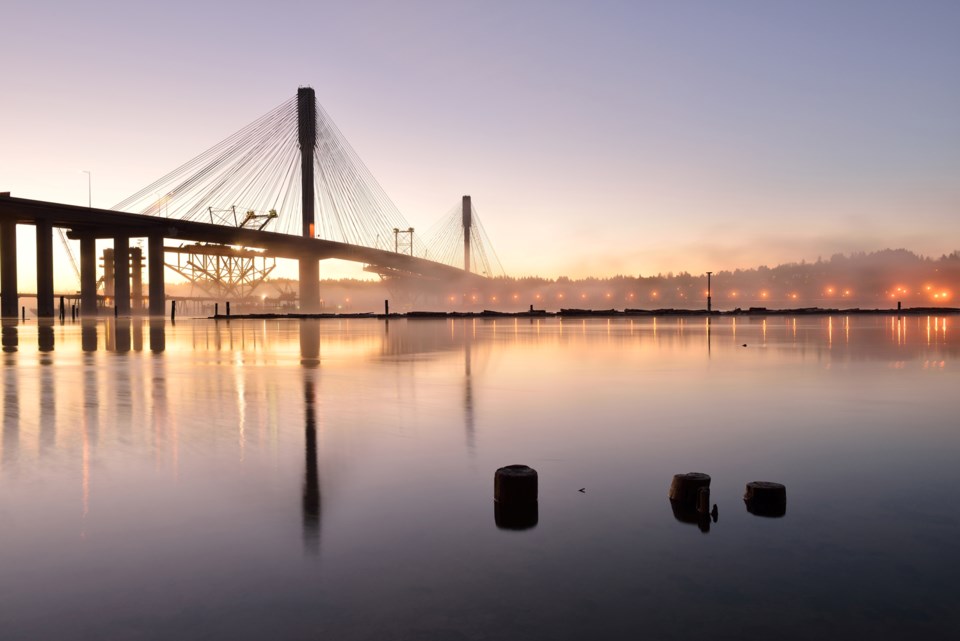There were two reminders on display last week of why the NDP is in power in this province and the B.C. Liberals are not.
First came the official confirmation by the auditor-general that the last fiscal year ran up a huge $2.7 billion surplus. That’s right: “billion.”
Then came the NDP government making good on a key – perhaps “the” key – election promise by scrapping the tolls on two Metro Vancouver bridges by the end of this month.
Both of these developments provide stark evidence of how the B.C. Liberals lost their touch after 16 years in power, and of how the NDP finally hit on a winning formula at election time. What links both of these issues is “affordability," which was the centrepiece theme of the NDP election platform. But while the New Democrats grasped the importance of affordability, the B.C. Liberals displayed a fatal tone deafness to the problem.
Let’s examine that huge surplus first.
The B.C. Liberals were more than happy to simply allow the $2.7 billion to be applied to the province’s direct debt, as if that was what voters were clamouring for more than anything else. Funny, I don’t remember anyone, anywhere, in that election campaign, demanding that the direct debt be paid down as the top priority facing the province.
Rather than provide help for those struggling to keep pace with the high costs associated with living in Metro Vancouver, the B.C. Liberals repeated their mantra that “if the economy grows all will be well” and that creating a job was the end-all and be-all of a government’s responsibilities.
But the economy is growing faster than anywhere in Canada and this province has the lowest unemployment rate in the country. And yet the affordability situation remains profound: there is a rental crisis, a home ownership crisis, a mass of people living well below the poverty line, overcrowded transit, high tuition fees, an underfunded education system ... the list goes on.
Yet none of that massive $2.7-billion surplus was spent on trying to solve some of those problems. Instead it was applied to paying down a particular and somewhat abstract portion of the province’s debt (which, overall, continues to climb).
In retrospect, I’m sure the B.C. Liberals are realizing what an obtuse, out-of-touch choice they made.
Which brings us to those bridge tolls.The NDP clearly hit a home run when, in the middle of the campaign, it promised to get rid of them. It caught the B.C. Liberals so off guard they were forced to come up with a back-of-the-envelope idea of capping the tolls at $500 (after first blasting the NDP for such an “irresponsible” promise). But the NDP’s promise was the equivalent of offering a $1,500 cheque to the thousands of people who cross the Port Mann Bridge and the Golden Ears bridges twice a day in their commute.
This promise is clearly why a majority of eastern suburban ridings – where those bridge commuters live – went the NDP’s way, and not the way of the B.C. Liberals, who lost perhaps a half dozen ridings on this issue alone.
From a strictly public policy approach, criticism can be levelled at the tolling decision (among other things it will transfer about $4 billion to the provincial debt, and could lead to a slight downgrade in our credit rating). And scrapping the tolls will make it tougher for Metro mayors to develop a road pricing system (which is likely desperately needed) since the Port Mann experience shows the issue is toxic with voters.
But from a purely political approach, scrapping the bridge tolls is a winning one. The decision left the B.C. Liberals sputtering and revealed them to be at sea politically. After all, the party’s last throne speech also promised to scrap the tolls, yet when it finally happened, the party denounced the move. Which is it, folks?
The NDP has grasped that people want something back from government and worries about the provincial debt now take a distant back seat to worries about their own personal debt. That’s why they finally made it into government. And if the B.C. Liberals stick to their old tone-deaf ways, the NDP will be there for a while yet.
Keith Baldrey is chief political reporter for Global B.C.



